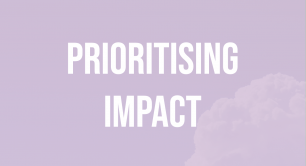'Computer says no' – are grants and debt the only social investment show in town?
Must social enterprises take what they can get – or can they shape the social finance they need? Responding to recent calls for long-term, patient capital for the social sector, Lisa Ashford draws on experiences with community shares and investment platforms in the UK and Africa to explore a way forward.
This is a story of two halves, firstly what we see from our investors (everyday people) and secondly what we have experienced ourselves over the past year or so, both with Ethex and Energise Africa, two of the UK’s leading impact investing platforms.
Let me start by saying I wholeheartedly agree with recent assertions that there is a desperate need for patient, long-term capital in the social sector.
This was identified a long time ago (and mooted en masse at the last social investment industry gathering in March 2019 if not before). As identified in the excellent Beyond Demand report, many organisations either do not know, or do not ask about more flexible, equity-like funding. In my view, there is a common understanding among many organisations that, as money in the social investing sector trickles down from the same place, this kind of finance is the only show in town and it’s ‘computer says no’ in terms of asking for something different. So social enterprises need to take what they can get (usually grants or debt), rather than shaping the kind of finance that they actually need.
Community shares: a radical approach?
While community shares are specifically excluded from the aforementioned research report, there is much to learn from this approach to accessing finance. Perhaps rather than considering it somewhat old-fashioned, we should be embracing it as a radical approach to creating shared value and increasing the resilience of hollowed out communities. Maybe we should view it as a model that’s worth exploring in a post-Covid/build-new-models/build-back-better environment. But that’s a story for another day.
Rather than considering it old-fashioned, perhaps we should embrace it as a radical approach to increasing the resilience of hollowed out communities
Ethex’s perspective is that community shares, to some extent, have been providing this sought-after, long-term capital and the individual people who invest this way have clearly shown themselves to be a lot more patient than many of the financial institutions. But this is the wrong way around and shows just how out of touch financial institutions are with what people want from sustainable financial products (which was clearly outlined in the UK Government’s Investing in a better world report). Many of the investment opportunities that are listed on Ethex have business models that work on the basis of the capital invested being returned over a long period without the expectation of capital growth. This approach seems to work for social enterprises, rather than trying to force them into making hockey stick projections and creating unrealistic expectations.
More crowd power
Having said that, there is a need for financial institutions to provide risk capital when appropriate but as organisations mature and become more stable then there is the potential for this to be refinanced via the crowd as the risk reduces – freeing up the high-risk, institutional capital to be invested elsewhere and recycled. Or actually we should be looking at blending finance a lot more with institutions playing a critical part in providing capital for guarantees or first loss, thereby getting more leverage and bang for their buck when investing alongside individual investors.
In our experience with Energise Africa, there is way more innovation happening in international development finance than there is in the UK! Why is that?!
Leveraging institutional money is the smart thing to do and can create more crowd power – this confidence-boosting effect has been proven through research conducted by E4i on our Energise Africa platform. More money invested equals more impact achieved, and every £1 of investment provided by foundations and government has helped to leverage an additional £5 of investment from individual investors.
At Energise Africa we have found an appetite from UK aid and other institutions/foundations to test and innovate solutions, particularly around first loss, investor guarantees and blended finance. There seems to be a real fear in the UK when it comes to experimentation. In international markets, development finance institutions (DFIs) can be potent catalysts for fixing market failures, incubating markets and promoting structural transformation. Perhaps having multiple DFIs operating in one country gives the opportunity to compete, collaborate, or learn. There are often strong partnerships with private companies and innovative structures to maximise leverage. They are also starting to figure out how to work with crowdfunding organisations as a credible investment finance provider. Despite all this, there is still a tendency towards debt rather than equity. But this is starting to change.
Profit-for-purpose organisations... can often fall between two stools – not commercial enough for venture capitalists – not cuddly enough for foundations
Too many strings attached
Back in the UK, the growth of profit-for-purpose organisations is happening rapidly. So funders will need to adapt their thinking on how to potentially fund these organisations who probably don’t have an asset lock but do potentially have really strong impact. These types of organisations can often fall between two stools – not commercial enough for venture capitalists – not cuddly enough for foundations. We don’t want these types of organisation, who may be willing to share their value for the greater good, to make their offering more commercial because it’s too hard to raise patient social investment or grant funding. And why is it hard? Because there are too many strings attached that limit the much-needed ability to pivot in times of change (and let’s face it, the days of five-year business plans are dead) – in this day and age, agile business planning for start-ups is key to survival.
If we are to seize the momentum and take advantage of our recovery from the Covid-19 pandemic to build back better then there needs to be a rapid rethink and evolution of how organisations across the UK raise money in this environment. We need a re-evaluation of how financial institutions use their valuable assets to create maximum impact and shared value for all.
I’m looking forward to the journey and bringing the valuable lessons we’ve learnt with Energise Africa and Ethex to help accelerate the flow of patient, long-term capital into this critical sector.
We're working hard to provide the most up-to-date news and resources to help social businesses and impact investors share their experiences and get through the Covid-19 crisis. But we need your support to continue. As a social enterprise ourselves, Pioneers Post relies on paid subscriptions and partnerships to sustain our purpose-led journalism – so if you think it's worth having an independent, mission-driven, specialist media platform for the impact movement, please click here to subscribe.




